Migrants to Britain c1250 to present
Migrants to Britain c1250 to the present overview - OCR B
Migration has played an important part in Britain's history from c1250 to the present day. It has influenced Britain’s economy, politics, culture and relationship with the wider world.
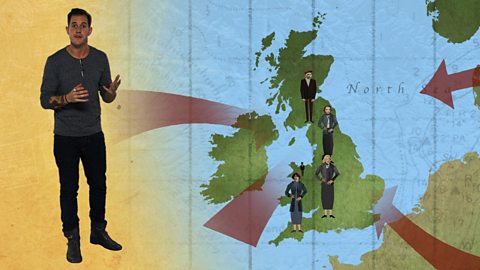
Medieval England 1250-1500 overview - OCR B
England was already shaped by migration. Power rested with monarchs and the Church, always with the threat of rebellion. Most lived off the land, while the wool trade was vital to the economy.
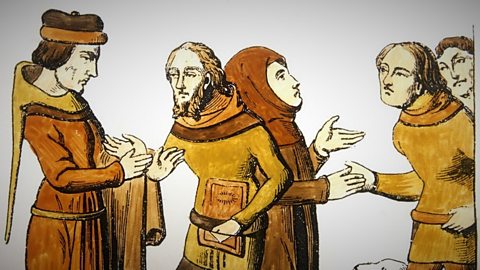
Attitudes towards migrants in medieval England - OCR B
The welcome migrants received was dependent on the political and economic situation at the time. Although most settled in to their communities, they were sometimes targeted.
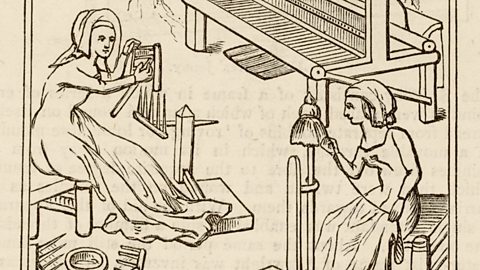
The diversity of medieval migrant communities - OCR B
Migrants came to settle in Britain for many reasons and from various parts of Europe. Most came to find work and their impact on the economy and society was great.
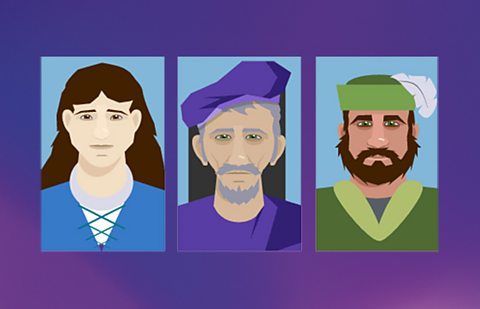
Jewish communities and their expulsion from England in 1290 - OCR B
Although many people at all levels benefited from Jewish moneylenders, rising anti-Semitism led to Jews being discriminated against, persecuted and eventually expelled from England.
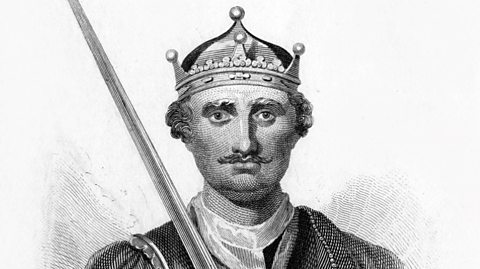
Early Modern Britain and the world, 1500-1750 overview - OCR B
Huge changes in Britain’s world role emerged from the Reformation, the beginnings of European colonialism, new global trade routes, the growth of business and the trade in enslaved Africans.
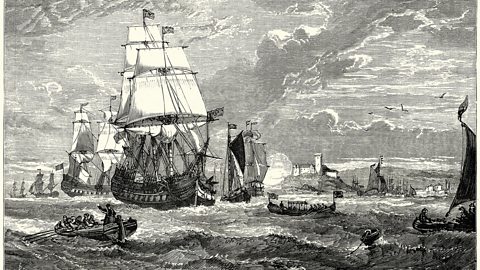
The diversity of other European migrants, 1500-1750 - OCR B
Different groups had different experiences. 16th century Gypsies were persecuted and the Hansa Steelyard was attacked and closed down but Jews were allowed back into England in the 17th century.
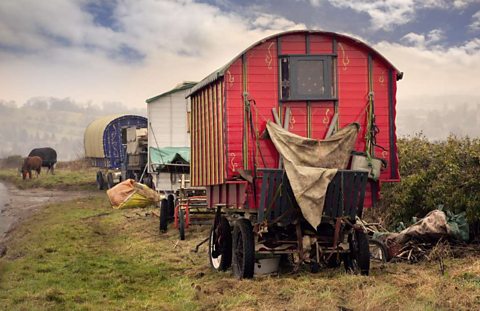
The Huguenots and other Protestant refugees, 1500-1750 - OCR B
Walloons and Huguenots were mostly welcomed and had a significant, lasting impact. Destitute Rhineland Palatines were less welcome and seen as a problem.
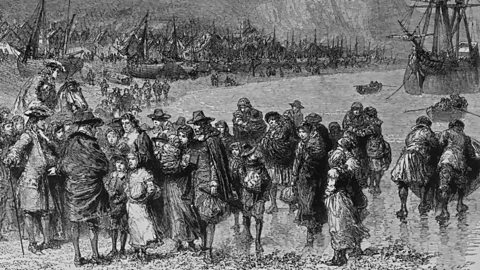
Early African and Indian migrants, 1500-1750 - OCR B
Africans in Tudor England lived free lives. From the late 17th century onwards, Africans and Indians were brought as servants. Some were treated as property at a time of enslavement in the colonies.
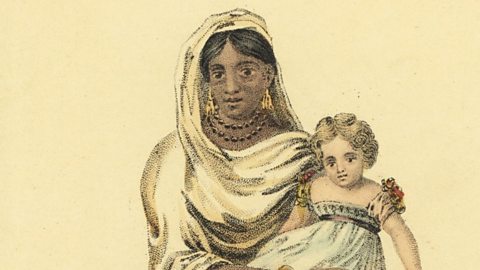
Industrial Britain, 1750-1900 overview - OCR B
In 150 years, Britain rose to become the dominant industrial and imperial power, greatly helped by migrant labour.
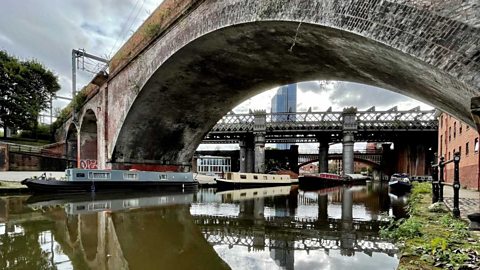
The diversity of European migrants, 1750-1900 - OCR B
Italian immigrants came seeking an escape from poverty, eastern-European Jews sought safety while Germans were looking for work opportunities.
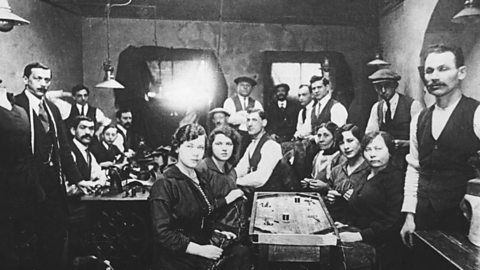
The growth of Asian and African communities, 1750-1900 - OCR B
Asian and African migrants came to Britain as a by-product of the British Empire. Most were part of the working poor; some joined the elite. In the port cities multi-racial communities developed.
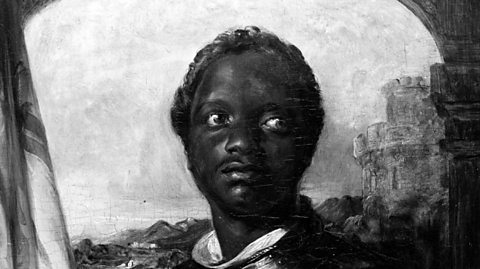
Migration from Ireland, 1750-1900 - OCR B
Emigration from Ireland was forced by poverty and disease. In England immigrants often faced terrible conditions and racism but were a vital labour force and became an integral part of the population.
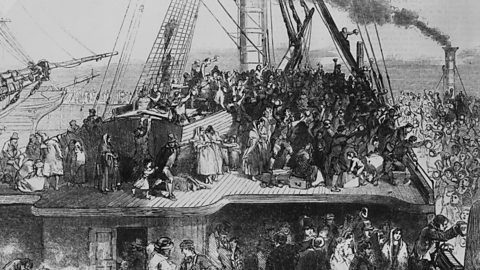
Immigration in the Modern Era, 1900-present overview - OCR B
World wars, the loss of empire, European division and unity, foreign involvement and atrocities at home all affected migration. Technology transformed how we communicated and understood the world.

Refugees and ‘enemy aliens’ in the Modern Era, 1900 - 1947 - OCR B
This was a period of strict immigration controls and racial tensions. During the two world wars ‘enemy aliens’ were interned. Some Jewish refugees from Nazi persecution were welcomed.
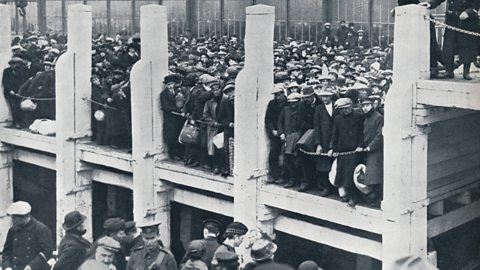
Commonwealth immigrants in the Modern Era, 1948-present - OCR B
Immigrants from the Commonwealth filled vacancies in vital industries but faced a sometimes violent racist backlash. Their response ranged from community organisation to uprising on the streets.
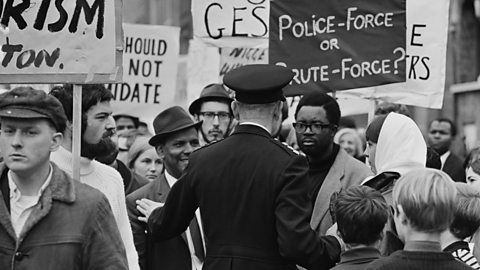
Economic migrants, refugees and asylum seekers, 1945 - present - OCR B
Free movement within the European Union led to mass migration just as increasing numbers of refugees were seeking to escape from foreign wars. This led to immigration becoming a hot political issue.
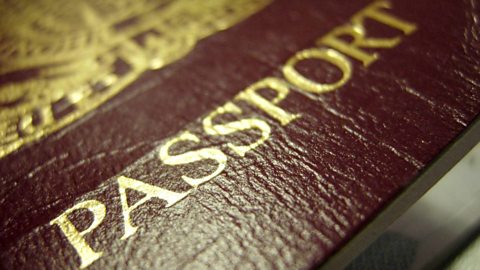
Migrants to Britain, c1250 to the present - exam preparation - OCR B
In your History GCSE, it is important that you not only have good subject knowledge, but have the skills to apply this knowledge to exam questions.
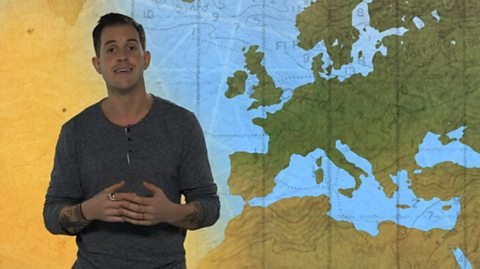
Links
- External linkExternal link
- External linkExternal link
- External linkExternal link
- SubscriptionSubscription
- External linkExternal link